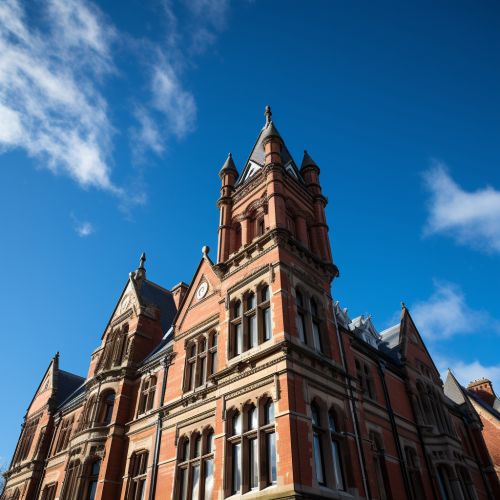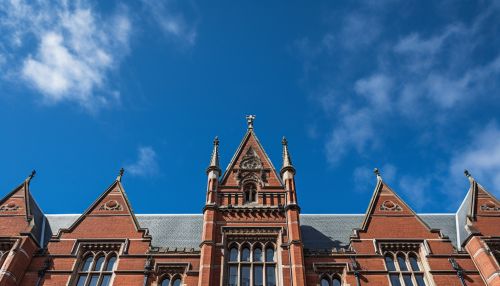University of Manchester
History
The University of Manchester is a public research university in Manchester, England, formed in 2004 by the merger of the University of Manchester Institute of Science and Technology (UMIST) and the Victoria University of Manchester. The history of the university dates back to 1824, with the foundation of the Manchester Mechanics' Institute, which later evolved into UMIST. The Victoria University of Manchester, on the other hand, was established in 1851 as Owens College. In 1880, the college joined the federal Victoria University, gaining an independent university charter in 1904 as the Victoria University of Manchester after the collapse of the federal university.


Campus
The University of Manchester's campus is spread over 270 hectares and is located in the south of Manchester city centre. The campus is divided into two areas: the North Campus (formerly UMIST), which includes the Sackville Street Building, and the South Campus, which includes the original buildings of the Victoria University of Manchester. The campus houses several notable buildings, including the Whitworth Hall, the John Rylands Library, and the Alan Turing Building.
Academic profile
The University of Manchester is a member of the prestigious Russell Group, a network of research-intensive British universities. It offers a wide range of degree programmes in arts, humanities, business, sciences, engineering, and medicine. The university is known for its rigorous academic standards and its commitment to research excellence. It is ranked among the top universities in the world for research quality and impact.
Research
The University of Manchester has a strong reputation for research and is one of the top research universities in the UK. The university's research strengths span a wide range of disciplines, from the humanities and social sciences to the physical and life sciences. The university is home to several research institutes and centres, including the Manchester Institute of Biotechnology, the Dalton Nuclear Institute, and the Jodrell Bank Centre for Astrophysics.
Student life
The University of Manchester has a vibrant student life, with a wide range of clubs, societies, and sports teams. The university's Students' Union is one of the largest in the UK, offering a variety of services and activities for students. The university also offers a range of accommodation options, from traditional halls of residence to modern city centre apartments.
Notable alumni
The University of Manchester has produced many notable alumni, including Nobel laureates, political leaders, and leading figures in the arts and sciences. Some of the university's most notable alumni include physicist and mathematician Alan Turing, chemist and Nobel laureate Ernest Rutherford, and novelist and Nobel laureate Doris Lessing.
